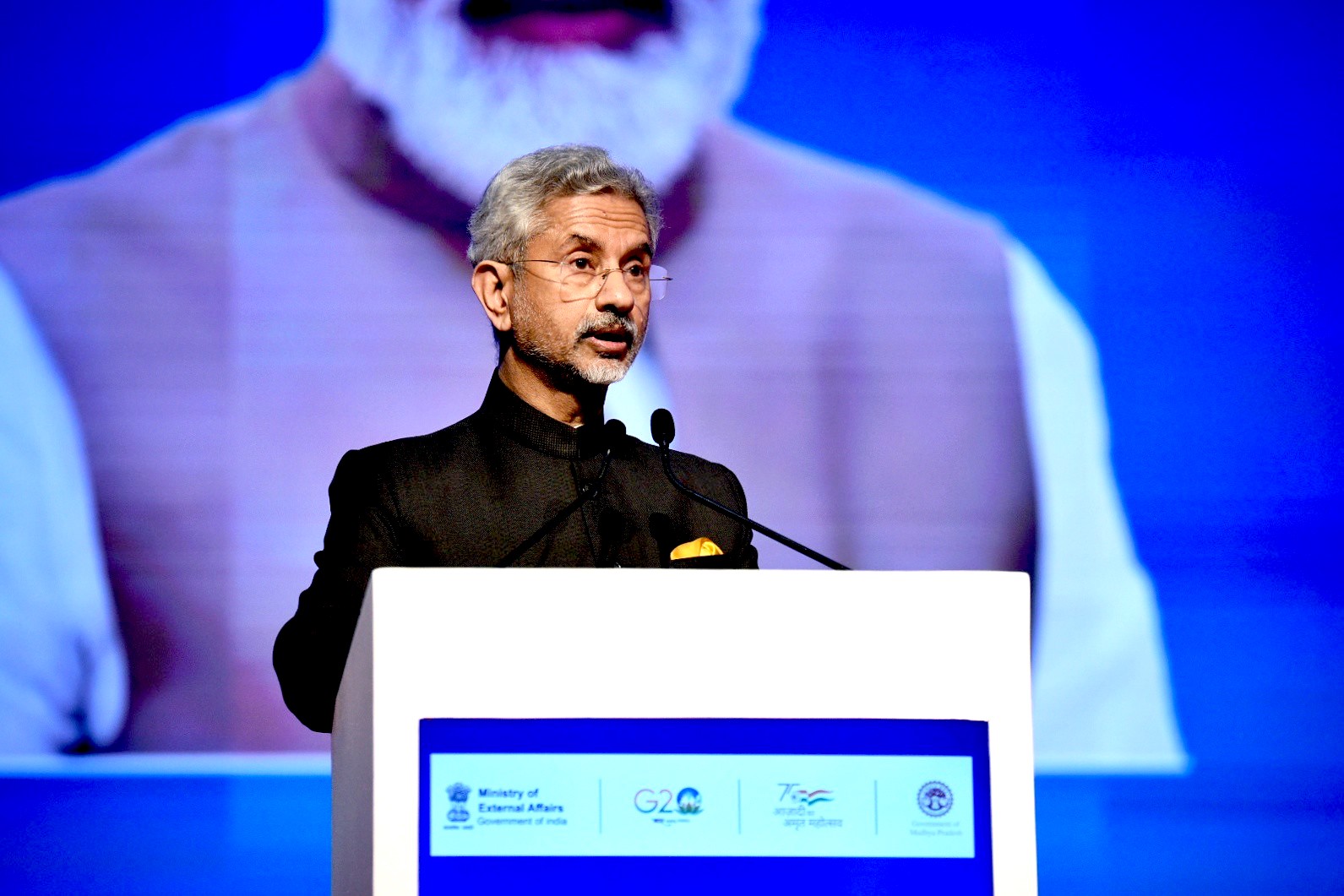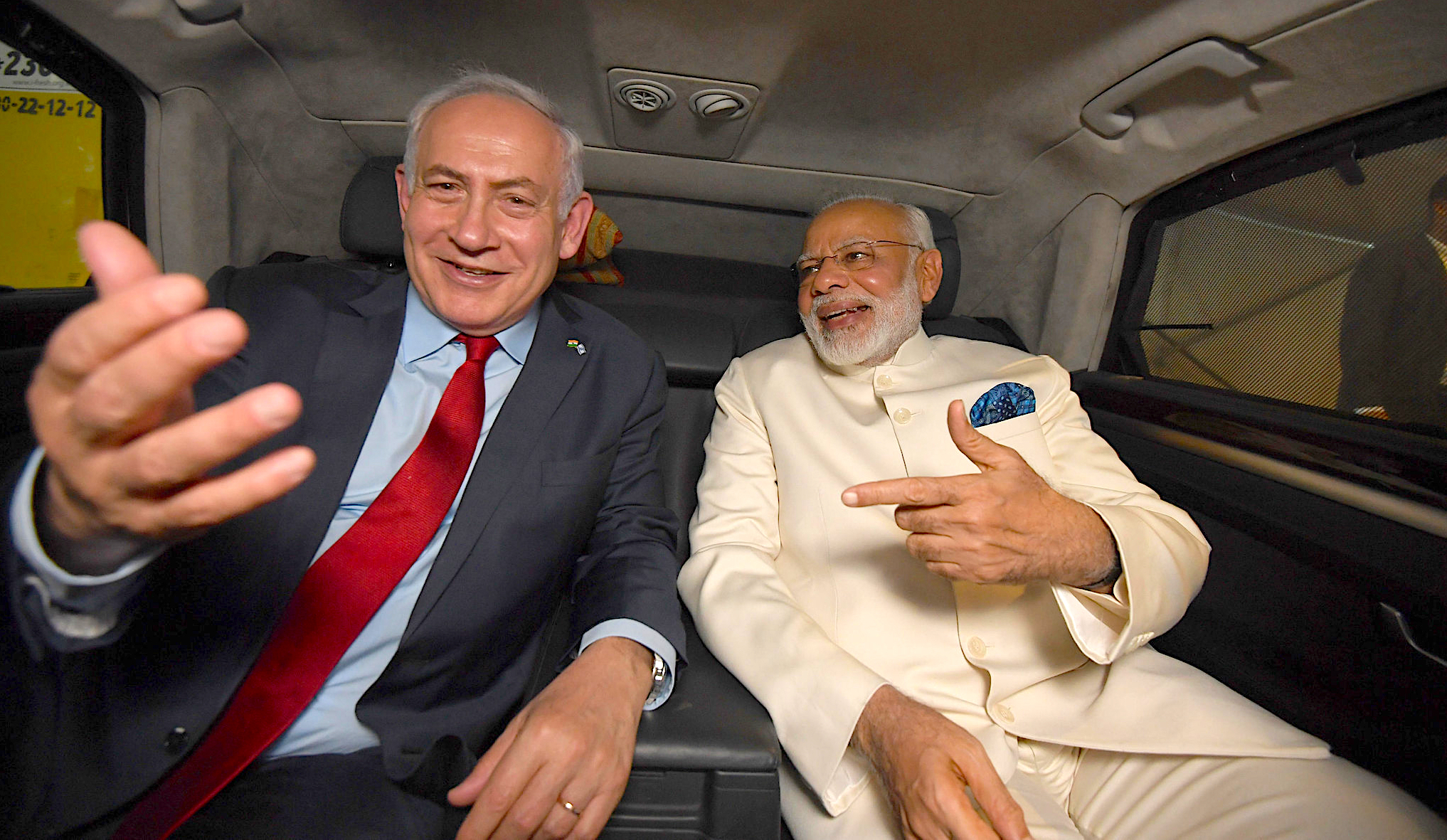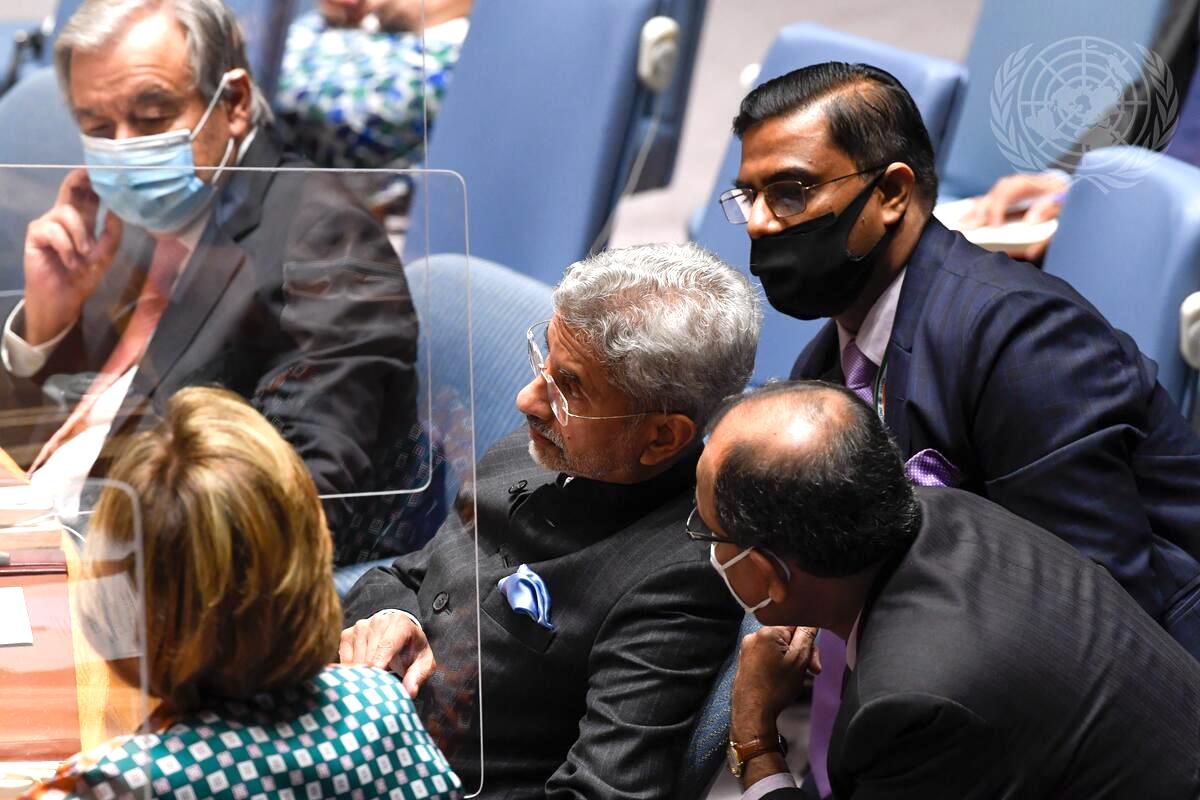Although a large section of the ruling BJP is pro-Zionist, S. Jaishankar’s ideology of neutral pragmatism prevails, writes Ullekh NP.

India’s External Affairs Minister S. Jaishankar in 2023. (MEAphotogallery, Flickr, CC BY-NC-ND 2.0)
By Ullekh NP
Special to Consortium News
 A growing perception over the past few years is that India has completely abandoned its traditional pro-Palestine stand and has gone for a bold-faced embrace of Israel. Partly to blame for this are the pro-Hindutva trolls in cyberspace who see parallels between Zionism and their interpretation of Hindu nationalism.
A growing perception over the past few years is that India has completely abandoned its traditional pro-Palestine stand and has gone for a bold-faced embrace of Israel. Partly to blame for this are the pro-Hindutva trolls in cyberspace who see parallels between Zionism and their interpretation of Hindu nationalism.
Yes, New Delhi did make it look so when Prime Minister Narendra Modi tweeted within hours of the Oct. 7 attack by Hamas on a few Israeli territories and revellers at a music festival that left close to 1,200 dead and shocked the world besides exposing the chinks in the armour of the much-hyped Israeli intelligence.
Modi said,
“Deeply shocked by the news of terrorist attacks in Israel. Our thoughts and prayers are with the innocent victims and their families. We stand in solidarity with Israel at this difficult hour.”
The Indian prime minister, incidentally, had come under heavy fire at the time from the opposition for remaining silent and not doing enough to contain ethnic strife that swept through India’s northeastern state of Manipur leaving many dead and thousands displaced.
Earlier, during his 2017 tour of Israel, Modi had visited the grave of Theodor Herzl, considered the founding father of Zionism, at the suggestion of his Israeli counterpart Benjamin Netanyahu.
‘A Course Correction’

Netanyahu and Modi in Israel, 2017. (Haim Zach/GPO/Israel Foreign Ministry/Flickr)
But the early enthusiasm of Modi does not reflect the foreign policy India is currently pursuing as regards the Israeli attack on Gaza, not only because of fresh information about what caused deaths on Oct. 7 and questions about the veracity of certain Israeli claims but also because of good sense.
Former career diplomat M.K. Bhadrakumar says that India has done a “course correction” on the Israeli-Palestine crisis shortly after the IDF attack on Gaza began this time around. He wrote recently in a column that from being a strategic asset, the Israel connection is becoming a liability for the Indian government.
“Delhi spurned Netanyahu’s repeated entreaties to brand Hamas as a terrorist organisation — by the way, India never pointed fingers at Hamas for the October 7 attack. It has resumed the traditional stance of voting against Israel in the UN General Assembly resolutions on the Palestine problem. The Netanyahu-Modi pow-vows have become infrequent,” he opined.
Israel has meanwhile repeatedly bent over backwards to please India.
It banned the Pakistan-based terror group Lashkar-e-Taiba (LeT) ahead of the 15th anniversary of the 26/11 Mumbai attacks of 2008, hoping New Delhi would reciprocate the gesture by banning Hamas.
When Hamas leader Khaled Mashal virtually addressed crowds at an event in the southern Indian state of Kerala, the Israeli embassy in New Delhi made a lot of noise, lapping up the incident as a quasi-terrorist act.
Still, despite a section of the ruling BJP leaders throwing their weight behind the Israelis, the Modi government didn’t take any action against the organisers.
‘Neutral Pragmatism’
It is here that India’s external affairs minister S. Jaishankar’s ideology of neutral pragmatism comes in.
KP Nayar, India’s popular newspaper columnist on foreign policy and analyst, explains Jaishankar’s priorities from a historical viewpoint,
“India has been unlucky in the choice of its foreign ministers during most of its existence as an independent country. Domestic political compulsions foisted on India a succession of foreign ministers, who were inarticulate, unsophisticated and had little interest in their country’s external affairs. One such was bedridden and incomprehensible in speeches because of a series of strokes but clung to office nevertheless. Another was so senile that Joe Biden today would be a paragon of alertness and comprehension.”

Jaishankar, centre, while serving as president of the U.N. Security Council for the month of August in 2021. At upper left is Secretary-General António Guterres. (UN Photo/Evan Schneider)
Nayar adds, “Only two Indian external affairs ministers have been experienced professional diplomats. Jaishankar is the second. The first (Natwar Singh) had a short tenure and resigned after the Paul Volcker Commission appointed by the United Nations Secretary-General to investigate the ‘oil-for-food’ scandal named him as a beneficiary.”
According to Nayar, Jaishankar comes across as aggressive because few of his predecessors have been so.
“He never lets a slight against India, however minor, pass unchallenged. In external affairs, he has no ideology other than what he thinks is in India’s best interests. Jaishankar has told friends that his actions now as a minister are exactly what he would have advised/done for four decades as a diplomat of the Indian Foreign Service (IFS).”
Unforgiving Towards US
Nayar, who has closely watched and known Jaishankar for long, points out, “Much more than in public, he is equally demanding and unforgiving with the United States as with Russia, most of all with Europe.” In private conversations, Jaishankar has been much more appreciative of China, which comes from having lived in Beijing for four and a half years as India’s ambassador, notes Nayar.
India and Israel continue to have good ties on the defence front, but that doesn’t translate into any support for its actions in Gaza.
True, India-Israel trade has grown from $200 million in 1992, the year formal ties were established, to $4.5 billion in 2014. In the 2023 fiscal year, Indian merchandise exports to Israel were valued at $7.89 billion and Israeli exports to India were at $2.13 billion.
But that did not stop Jaishankar from declaring at the Munich Security Conference in Germany in February that Israel should have been mindful of civilian casualties in Gaza. He also said Israel had an obligation to observe international humanitarian law.
Given a ‘Free Hand’ on Israel
A section of foreign policy watchers in India believe that the Israelis do not want the truth about India’s actual foreign policy towards them to make it to mainstream Indian media or overseas and are doing their best to lobby against it. But, much to their anguish, it seems as if Modi has given Jaishankar a free hand, otherwise, India’s official stance would have been different.
In short, India’s current foreign policy does not mirror Hindutva agitprop and the ruling BJP’s backing for Zionism (ironically, its parent RSS had endorsed the Nazi policy of purging the Jews until they lost the war and Hitler committed suicide).
The bottom line is that Israel’s reported efforts to suppress opinions against itself in the Indian media haven’t produced any meaningful results. By all indications, such bids are unlikely to click.
Ullekh N.P. is a writer, journalist, and political commentator based in New Delhi. He is the executive editor of the newsweekly Open and author of three nonfiction books: War Room: The People, Tactics and Technology Behind Narendra Modi’s 2014 Win; The Untold Vajpayee: Politician and Paradox; and Kannur: Inside India’s Bloodiest Revenge Politics. His forthcoming book on Cuba, part travelogue and part political commentary, is due for release in mid-2024.
The views expressed are solely those of the author and may or may not reflect those of Consortium News.

I am yet to be convinced that India is driven by other than hate and profit. Observing India since 1948, I have never noticed any political decision based on pro-humanity, but I have repeatedly witnessed cuddling sessions between Israel and India, especially in matters of weaponry. The one redeeming feature of Indian foreign policy is its friendship with Russia, which has persisted since independence.
Western countries, including the US and Israel, have repeatedly enslaved, killed, genocided brown people. They don’t mind doing this at all. They are not your friends.
C’mon …. the BJP and Modi’s crowd is not so much “pro-zionist” as they are “anti-muslim”.
IIRC, Modi just opened a Hindu Temple on a site where they had torn down the Mosque that had been there to build the temple. They of course don’t see any problems with Israel tearing down the third holiest site in Islam in Jerusalem to build their Temple on the site. But don’t confuse a common hatred for Islam with being pro-zionist. Its not a contradiction that Modi has a FM that doesn’t want to commit to full on genocide in Palestine and all the boycotts and reaction that would follow. Only pragmatism. And it does not contradict the Politics of Hate that powers Modi and his BJP.